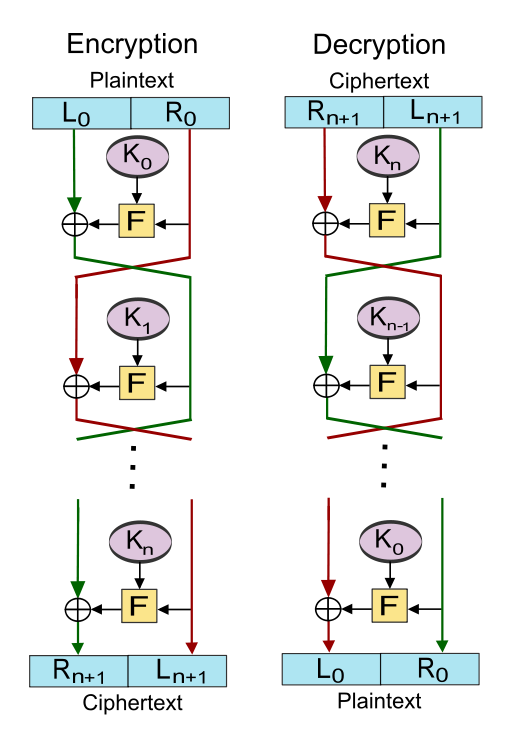Horst Feistel (1915 – 1990) German-American cryptographer – 4 Members
Feistel was born in Berlin, Germany in 1915, and moved to the United States in 1934. During World War II, he was placed under house arrest, but nevertheless gained U.S. citizenship on 31 January 1944. The following day he was granted a security clearance and began work for the U.S. Air Force Cambridge Research Center (AFCRC) on Identification Friend or Foe (IFF) devices until the 1950s. He was subsequently employed at MIT‘s Lincoln Laboratory, then the MITRE corporation. Finally, he moved to IBM, where he received an award for his cryptographic work. His research at IBM led to the development of the Lucifer and Data Encryption Standard (DES) ciphers. Feistel was one of the earliest non-government researchers to study the design and theory of block ciphers.
In cryptography, a Feistel cipher is a symmetric structure used in the construction of block ciphers, named after the German-born physicist and cryptographer Horst Feistel who did pioneering research while working for IBM (USA); it is also commonly known as a Feistel network. A large proportion of block ciphers use the scheme, including the Data Encryption Standard (DES). The Feistel structure has the advantage that encryption and decryption operations are very similar, even identical in some cases, requiring only a reversal of the key schedule. Therefore, the size of the code or circuitry required to implement such a cipher is nearly halved.
https://en.wikipedia.org/wiki/Feistel_cipher


